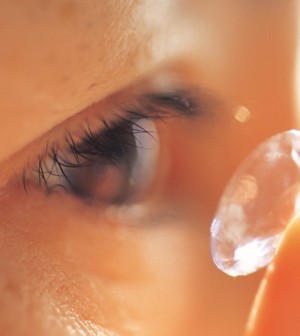- Stigma, Shame Hit Many Gay Men Affected by Mpox Outbreak
- Calories, Not Meal Timing, Key to Weight Loss: Study
- Dietary Changes May Beat Meds in Treating IBS
- Screen Pregnant Women for Syphilis, Ob-Gyn Group Advises
- Even With Weight Gain, Quitting Smoking in Pregnancy Still Best for Health
- A-Fib Is Strong Precursor to Heart Failure
- One Neurological Factor Keeps Black, Hispanic Patients From Alzheimer’s Clinical Trials
- Managing Blood Sugar After Stroke Could Be Key to Outcomes
- Dozens of COVID Virus Mutations Arose in Man With Longest Known Case
- Blood Test Might Someday Diagnose Early MS
Some Primates Have Vision Troubles as They Age

Just like humans, some primates start having difficulty seeing things up close as they age.
Researchers reviewed photos of 14 wild bonobos as they groomed each other. The primates were between 11 and 45 years old. The older they were, the longer they stretched their arms as they groomed, the study reported.
The findings were published Nov. 7 in the journal Current Biology.
“We found that wild bonobos showed the symptoms of long-sightedness around 40 years old,” study author Heungjin Ryu, from the Primate Research Institute at Kyoto University in Japan, said in a journal news release.
“We were surprised that the pattern found in bonobos is strikingly similar to the pattern of modern humans,” he said.
There have also been anecdotal reports of similar behavior in chimpanzees.
Long-sightedness might hinder the social lives of older bonobos and could explain why older individuals aren’t favored when it comes to selecting grooming partners, Ryu said.
He also noted that people who grow long-sighted with age also have difficulty seeing in the dark, something that could be a major challenge for the bonobos because they live in the shade of the rainforest canopy.
The findings suggest that long-sightedness in people isn’t due to too much time spent reading or staring at a screen. Rather, it’s a natural process of aging from our evolutionary past, Ryu said.
More information
The U.S. National Institute on Aging has more about eyes and aging.
Source: HealthDay
Copyright © 2024 HealthDay. All rights reserved.










